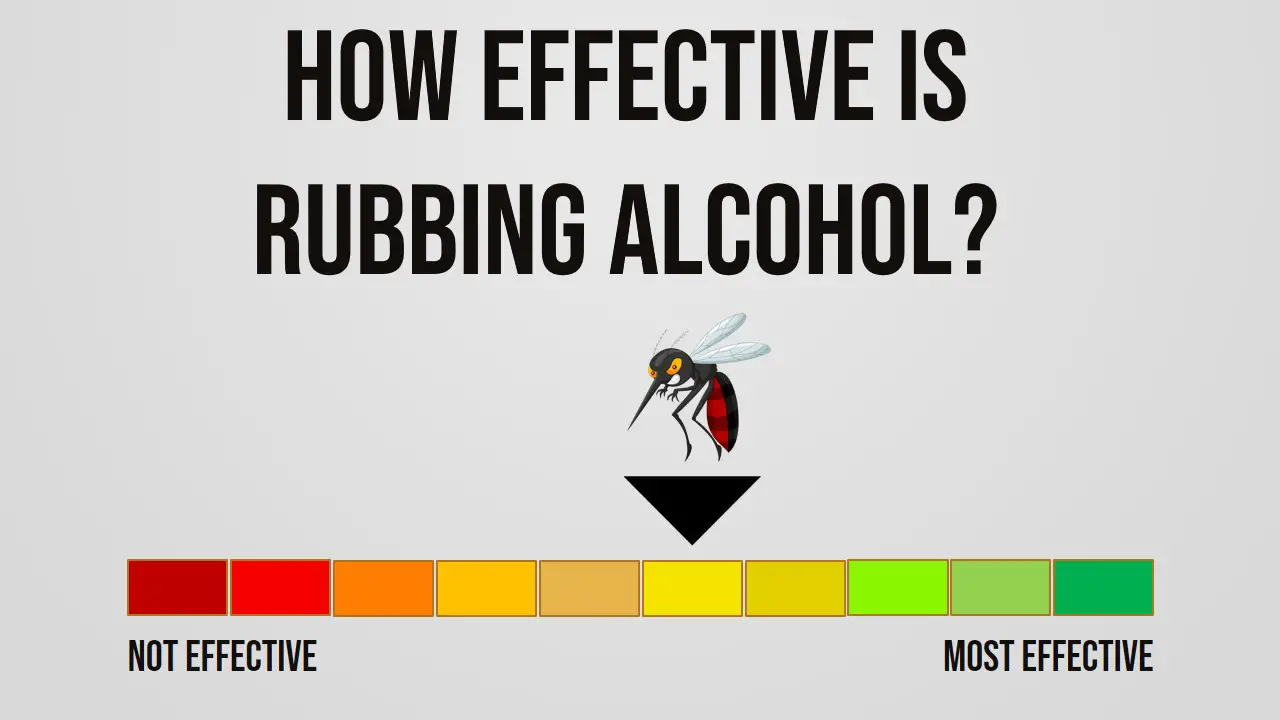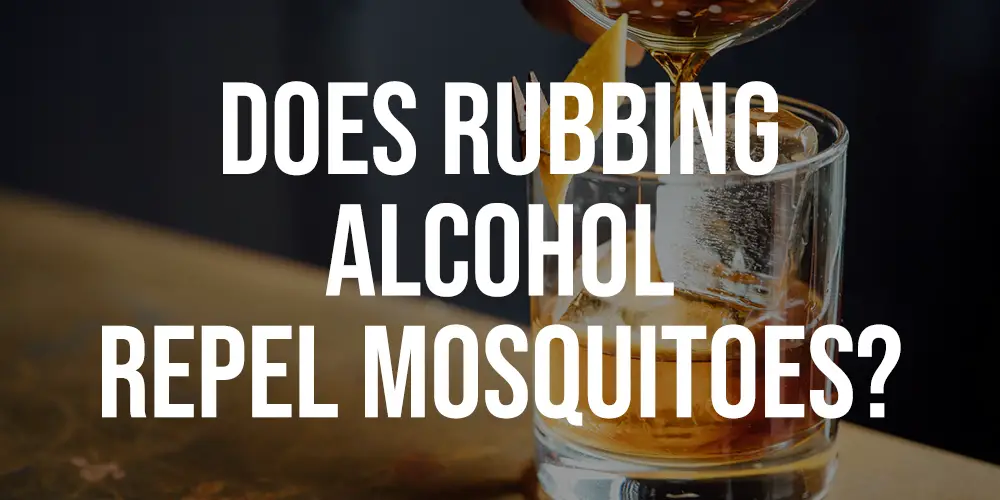Most will report that there is no definitive answer to this question, because of conflicting evidence on whether or not rubbing alcohol actually repels mosquitoes. Some online reports have shown that rubbing alcohol can be effective in repelling mosquitoes, while other studies have found that it has little to no effect.
From our research, the conflicting data is due to the concentration used. Some of the studies use the typical concentrations found at most stores of 70% and 90%. Much of the information online that purports to use rubbing alcohol as a mosquito repellent is doing so as an alternative to DEET.

Navigation
Why Are People Looking For An Alternative to DEET?
DEET is the most common and effective mosquito repellent on the market. However, it can be toxic if ingested, and some people may have an allergic reaction to it. For these reasons, many people are looking for a natural or alternative repellent, such as rubbing alcohol.
One prominent researcher, Mohamed Abou-Donia, Ph.D., has warned that with “heavy exposure to DEET and other insecticides, humans may experience memory loss, headache, weakness, fatigue, muscle and joint pain, tremors and shortness of breath.” (1) Thus, it may be wise to seek an alternative mosquito repellent solutions.
Cautions With Using Rubbing Alcohol as Mosquito Repellent
While some people may be looking for a natural mosquito repellent, it’s important to note that rubbing alcohol is not without its own risks. If ingested, rubbing alcohol can cause serious health problems. Additionally, if rubbed onto the skin, it can cause irritation and burning. Additionally, many of us have dealt with the sting of rubbing alcohol as it finds open wounds.
To be fair the warning about ingestion applies to both DEET and rubbing alcohol. Moreover, if the purpose is to repel mosquitoes then DEET, when used with caution may be the better alternative.
While closely reading the alcohol-based solutions, it is important to note that the user requires the user to spray the alcohol-based solution either where the mosquito lands or on the mosquito itself. Thus, it does not appear to be a true repellent as you are required to spray the nearby mosquito.
Another popular alcohol-based mosquito repellent solution is the mosquito trap. However, they are more of a deterrent than a repellent as the mosquitoes get caught in the trap and are thus away from the people looking to avoid mosquito bites.
Can Alcohol Reduce Itching From Mosquito Bites?
While some people may want to use rubbing alcohol as a repellent, others find that it can be effective in reducing the itchiness caused by mosquito bites. This is likely because rubbing alcohol can help to dry out the bite.
To reduce the itch of a mosquito bite:
1. Apply a few drops of rubbing alcohol to the area of the bite using a clean cotton swab or cloth.
2. Allow the alcohol to dry completely before applying any other treatments or covering the affected area.
3. Repeat as needed until you no longer experience itchiness from the mosquito bite.
Alcohol is best used to treat the affected bitten area as soon as possible. As noted above rubbing alcohol on a cotton ball, swab, or alcohol wipe are effective ways to address the mosquito bite. It is suggested to abstain from scratching the area as itching may be a catalyst to redness and exacerbate your itch.
Alcohol As A Mosquito Repellent Conclusion
The positive aspect of using alcohol as a mosquito repellent is that it avoids using poisonous chemicals. Alcohol-based and organically based mosquito repellent avoids harmful chemicals from harming you, your kids, pets, and the environment. Another positive is that alcohol dries quickly and without residue.
The negative aspect of using alcohol as a mosquito repellent is that the mosquitoes must be nearby and you either need to mist them or continually spray the solution around you in an attempt to create a barrier between you and the mosquitoes.
In our opinion, it is worth a try but there are better alternatives that repel these blood-sucking insects.
References

